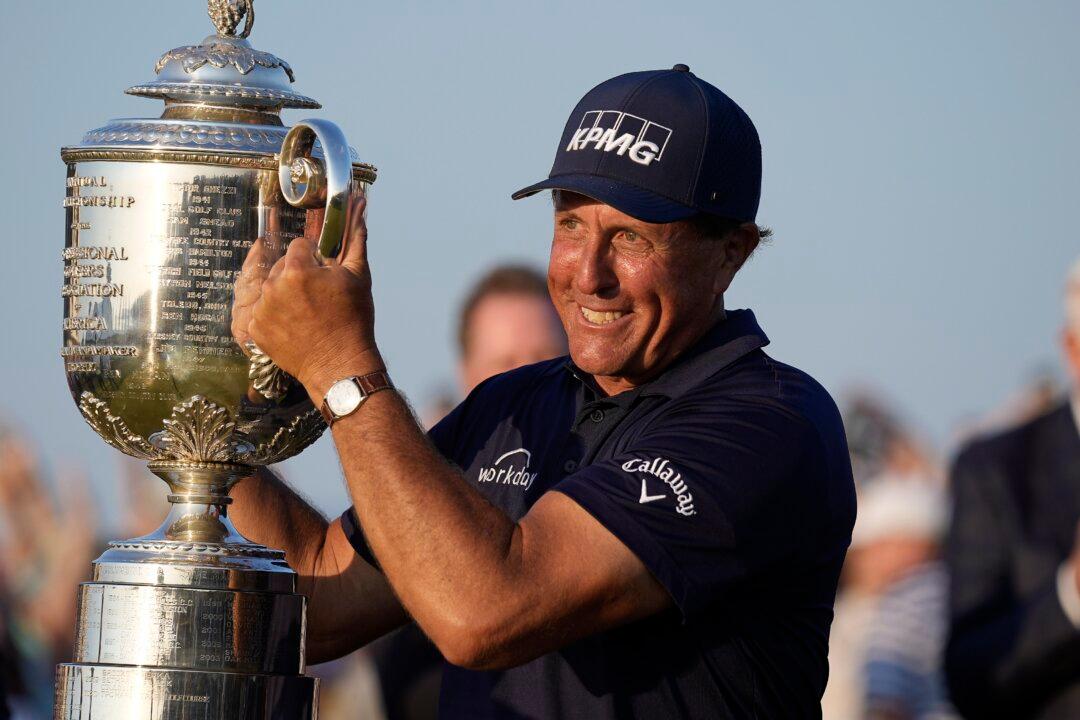KIAWAH ISLAND, S.C.—Among the congratulations that poured in for Phil Mickelson becoming the oldest major champion in golf was a video tweet from Jack Nicklaus, who is still good at math.
“You know, something sort of strikes me that 50 years old is older than 46,” Nicklaus said with a grin. “Well done, my friend. Many more.”





